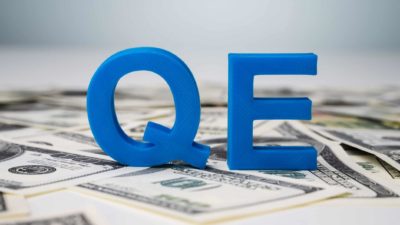There is no doubt that Exchange Traded Funds (or ETFs) have become wildly popular over the past decade, particularly for passive investments or in superannuation funds. This is mostly for good reason – in the pre-ETF era, most retail passive investors went with managed funds or Listed Investment Companies (LICs) that were characterised by eye-watering fees, sometimes north of 3% per annum. Investors were charged these ridiculous fees for funds that, more often than not, underperformed the index or at best, matched it after fees.
The main advantage of an ETF (and here we are talking about an index fund, not your more exotic options that are also available) is that it can get you market-matching results with a very low price. The iShares S&P 500 ETF (ASX: IVV) for example, will give you the performance of the top 500 public companies in the US for a fee of 0.04% (that's $4 a year for every $10,000 invested).
This is a huge advantage and should not be understated. This amazingly cheap gateway to passive investing has transformed the financial services industry for the better and forced actively managed funds and LICs to lower their own fees in order to compete.
There is one characteristic of ETFs that I do not like and I think it a major reason to consider a LIC if you are tossing up between the Vanguard Australian Shares ETF (ASX: VAS) and the Australian Foundation Investment Co. Ltd (ASX: AFI), for example.
What's the catch?
ETFs are what's known as open-ended investment vehicles. This means that when you buy units of the ETF, your money is used to automatically buy more shares of the underlying companies. Similarly, when you sell ETF units, the ETF will automatically sell the same companies.
A LIC, on the other hand, is a closed-ended investment vehicle. Once the LIC is listed, the pool of funds that is available to the management is closed to investors. When shares are bought and sold, money does not flow in and out of the LIC in the same way as an ETF. This is why LICs can trade at a premium or discount to the underlying value of the company. Management can buy and sell shares of the LIC themselves to raise extra cash or to take profits, but they don't have to do this.
Why is this a problem?
It's not, under normal market conditions. Markets are relatively efficient most of the time and normally with a LIC, the price will reflect the underlying value, sometimes with a discount or premium based on past performance.
However, if there is a stock market crash – this logic goes out the window. When panic sets in, investors have a nasty tendency to just 'pull everything out' regardless of the wisdom of doing so. This is fine for LICs like MFF Capital Investments Ltd (ASX: MFF), as it will probably just give other (smarter) investors a bigger discount for the shares. But this situation would force managed funds and ETFs to start selling their holdings in the worst possible time to fund these pull-outs, further exacerbating these losses for the remaining unitholders.
Foolish Takeaway
ETFs are a fantastic investment vehicle, but it's important to keep the potential downsides in mind as well. For this reason (especially considering where we are in the market cycle), I prefer LICs over ETFs for the most part as I don't want my cash to be hostage to other investors' fear if this situation were to arise. But each to their own.







